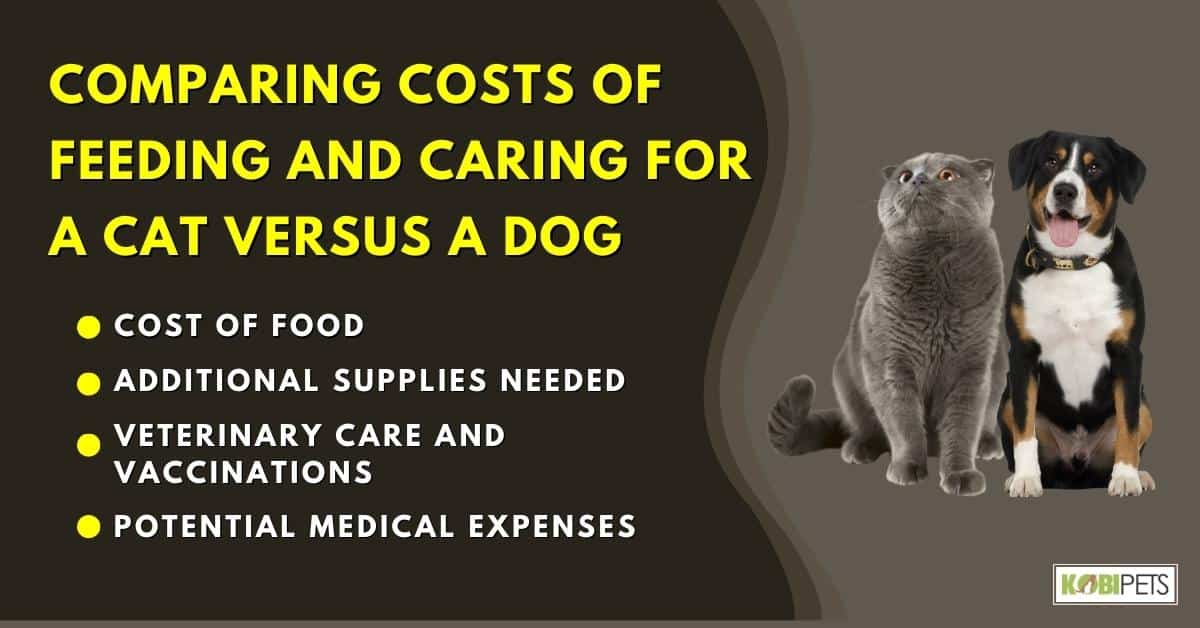
Are you trying to decide whether a cat or a dog is right for you and your household? While there are certainly emotional factors involved in the decision-making process, it’s also important to consider practical factors such as cost. In this blog, we’ll compare the cost of feeding, caring for, and owning a cat versus a dog.
We’ll look at the costs of food, additional supplies needed, veterinary care and vaccinations, as well as potential medical expenses. By the end of this blog post, you should have a better understanding of what it will cost to own one or the other. So let’s dive in!
Different Costs Involved in Owning a Cat or Dog
Owning a pet, whether are cats or dogs, is a rewarding experience and comes with a great deal of responsibility. Owning a pet comes with certain costs potential owners should keep in mind.
This can include the purchase cost of adoption or buying the pet itself, food (which must be kept to a high quality to ensure long-term health), medical bills (vaccinations, spaying/neutering, medications), and other services such as grooming and training.
Furthermore, the owner needs to invest in at least some basic supplies like kennels/carriers, toys, and litter boxes. Considering these different costs involved in owning a cat or dog is paramount for any potential pet owners to ensure that they are making the appropriate commitments before welcoming their new companion into the family.
Cost of Food: Cats vs Dogs
| Type of Pet Food | Cost per Month (USD) | Cost per Year (USD) |
| Cat Food | $20 | $240 |
| Dog Food | $30 | $360 |
Feedings Cost for Cats
The cost of feeding and caring for cats can vary greatly depending on your pet’s age, breed, and lifestyle. Cats require a quality diet to stay healthy and maintain their energy levels, so providing high-quality food is recommended – both canned and dry options work well.
The cost of this will depend on the type of product you buy, with dry food generally being cheaper than canned food. For example, if you purchase a premium brand, it’s likely to be about $25 for around 10 pounds of dry food. Canned cat food can range from 50 cents per can up to $1.50 or more per can.
In addition, cats need routine veterinary care such as vaccinations, flea treatments, and check-ups that can add additional costs to their care regime – usually totaling in the range of $200-$400 a year depending on services needed.
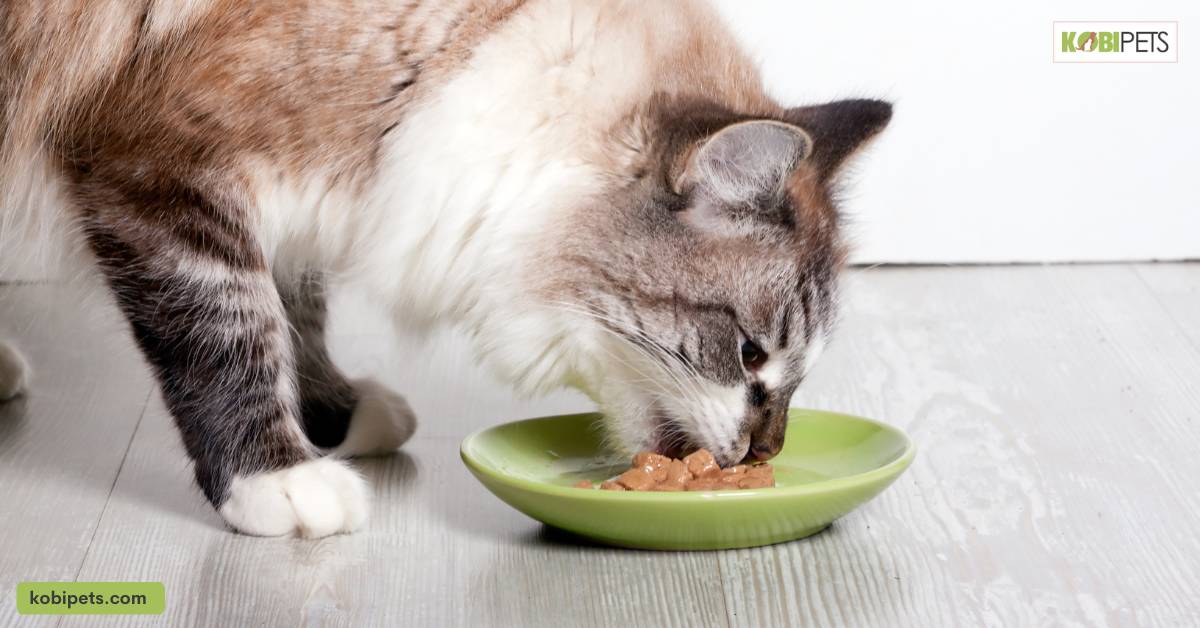
Feedings Cost for Dogs
Caring for a pet dog is a long-term investment: both in terms of financial cost and emotional commitment. Food is one of the primary costs associated with owning a dog – especially when it comes to larger breeds. Quality food for your pup can quickly add up and generally must be purchased monthly or bi-monthly, depending on size and breed.
Aside from food, it’s important to also factor in any additional healthcare or care costs. Depending on the situation, these could include regular vet visits, medications, grooming services, and more; all of which can add up significantly over time.
Caring for your pup doesn’t have to break the bank if you plan ahead and make informed decisions, but it still cannot be overlooked that feeding and care costs are a part of responsible pet ownership that potential owners should prepare for.
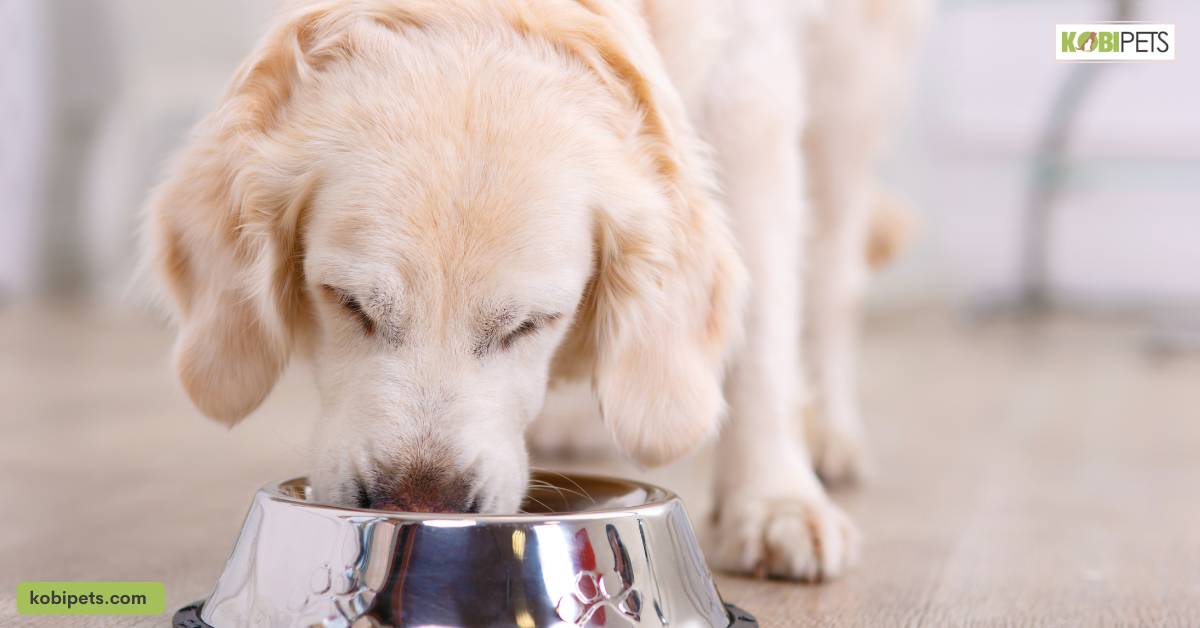
Additional Supplies Needed: Cats vs Dogs
| Type of Pet | Additional Supplies | Cost per Month (USD) | Cost per Year (USD) |
| Cat | Cat Litter | $10 | $120 |
| Litter Tray | $5 | $60 | |
| Cat Litter Scoop | $5 | $60 | |
| Cat Brush | $5 | $60 | |
| Dog | Feeding Bowls | $5 | $60 |
| Dog Bed | $20 | $240 | |
| Dog Brush | $5 | $60 | |
| Safety Collar with ID Tag | $10 | $120 | |
| Dog Toys | $10 | $120 |
Note: The cost may vary depending on the specific brand and quality of the product, as well as the size of the pet.
Additional Supplies Cost for Cats
Cats require a variety of supplies to ensure their health and well-being. Feeding bowls, beds, brushes or combs, safety collars with ID tags, toys, cat litter, and trays are essential items most cats will need in order to be cared for properly.
However, additional supplies may also be required depending on the cat’s age, size, and any other specific needs that must be met.
Pet owners should consider investing in pet insurance to cover the cost of major veterinary bills; dietary supplements like vitamin drops or medications; deworming treatments; flea control treatments; grooming services such as regular baths and nail trimming; and special food from veterinarians if required due to health issues.
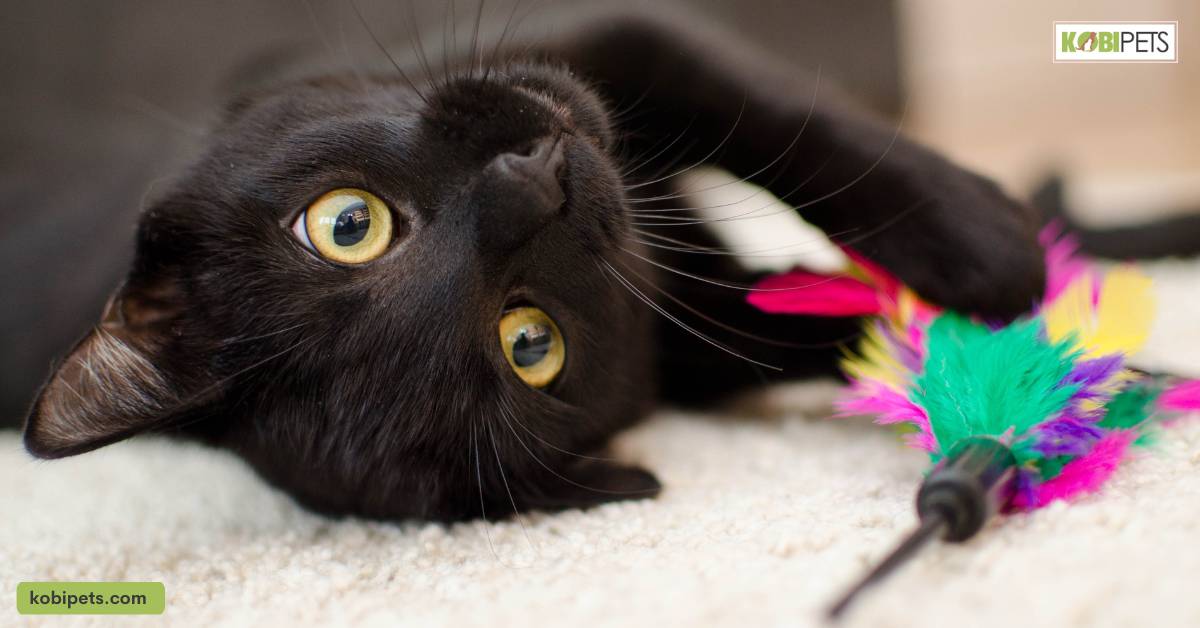
Additional Supplies Cost for Dogs
The cost of feeding and caring for a dog can add up quickly if you don’t plan accordingly. Every pup has its own individual needs, and having the right supplies to adequately address them is key. Beyond food, water, and a collar and leash; there are additional supplies needed to provide comfort and safety for our canine companions.
These could include bedding arrangements to keep them warm, crates or kennels that they can retreat to, toys to keep them entertained, nail clippers to maintain proper paw health, doggy toothbrushes and toothpaste to promote oral hygiene, shampoo for regular grooming, tick/flea medication if applicable, and eco-friendly poop bags for cleaning up after their messes.
The right combination of these items greatly contributes to safeguarding the overall health and well-being of your pup.
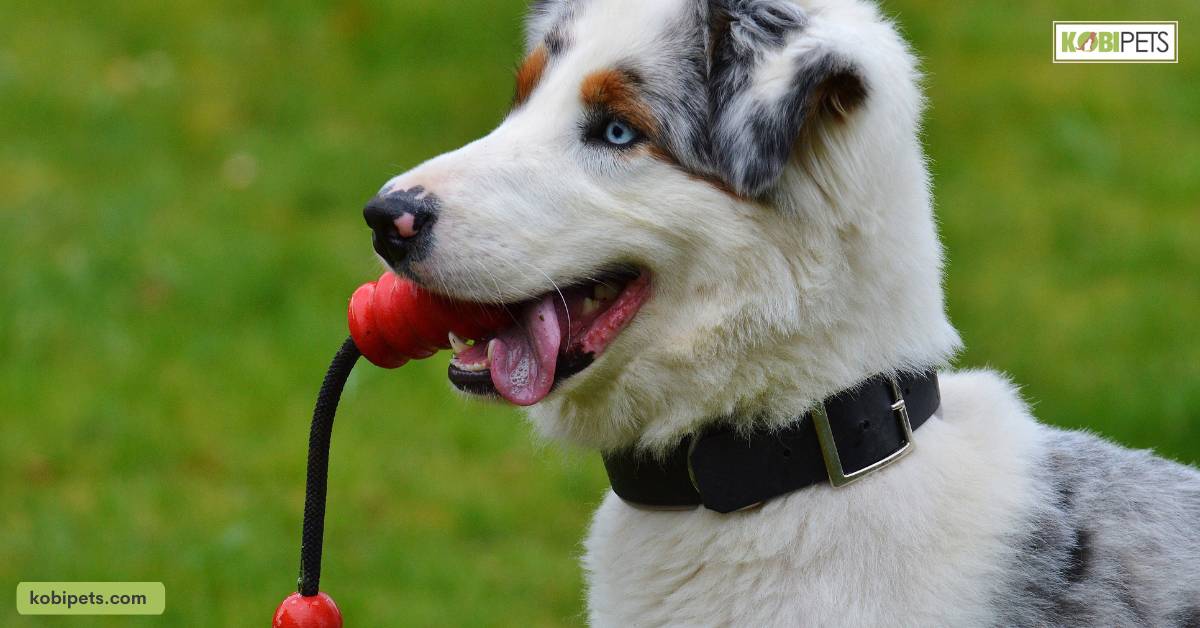
Veterinary Care and Vaccinations: Cats vs Dogs
| Type of Pet | Veterinary Care and Vaccinations | Cost per Year (USD) |
| Cat | Routine Check-up | $100 |
| Vaccinations | $100 | |
| Flea/Tick Prevention | $100 | |
| Spay/Neuter | $300 | |
| Dog | Routine Check-up | $150 |
| Vaccinations | $150 | |
| Flea/Tick Prevention | $150 | |
| Spay/Neuter | $400 |
Note: The cost may vary depending on the location and the specific veterinary clinic. Also, unexpected medical expenses may occur for either cats or dogs.
Veterinary Care and Vaccinations for Cats
Providing quality veterinary care is essential for your cat’s overall health. Vaccination is an important part of any pet healthcare program and a significant component of preventive care. Basic vaccines, such as rabies and distemper, protect cats from potentially fatal diseases that can be acquired through contact with wildlife and other cats.
Given the potential risk involved, it is important to ensure your cat stays up to date on vaccines. In addition to vaccinations, regular vet check-ups enable veterinarians to diagnose overall health problems at an early stage before they become more serious issues.
Quality veterinary care also helps to reduce feeding and care costs for cats by ensuring that preventative measures are taken to increase the odds of a longer, healthier life for your cat.
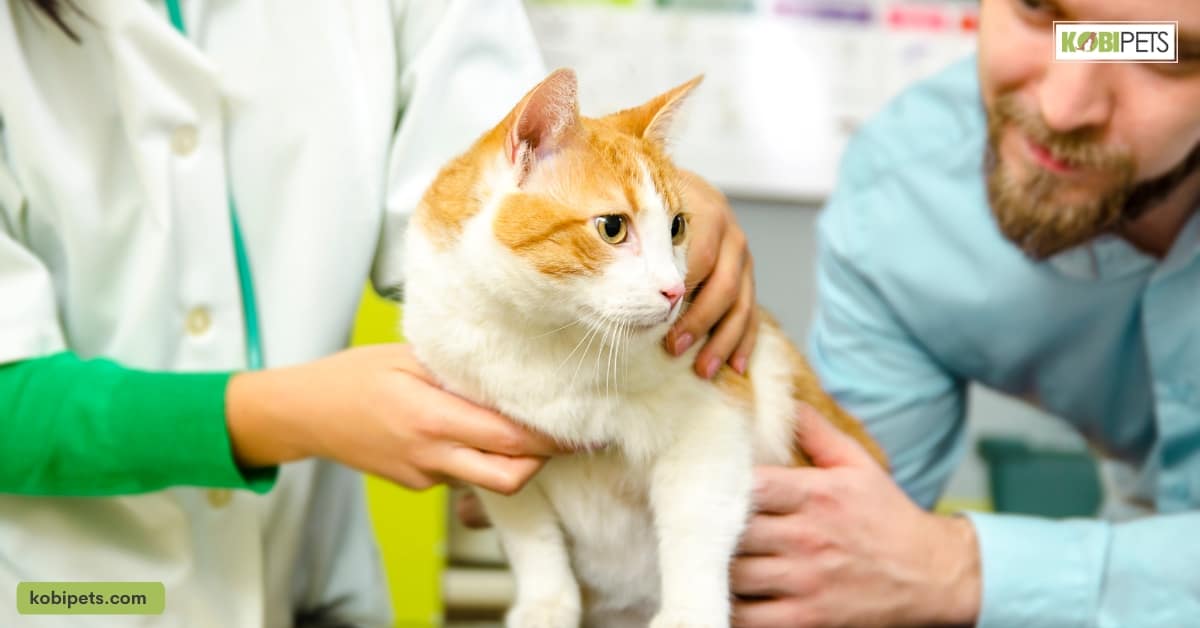
Veterinary Care and Vaccinations for Dogs
Taking proper care of a dog is not always cheap, and the responsibility of providing quality veterinary care should be taken seriously. One of the most important parts of being a good pet owner is keeping your pup’s vaccinations up to date, as well as ensuring they have regular check-ups with the vet.
Such expenses can add up quickly, so it is wise to budget accordingly while factoring in foreseeable feeding and care costs. Monitoring any changes in your pet’s diet, behavior, or habits will help ensure that health issues are caught early on if present.
Keeping your furry friend healthy and happy will prove worth every penny spent on quality veterinary care.
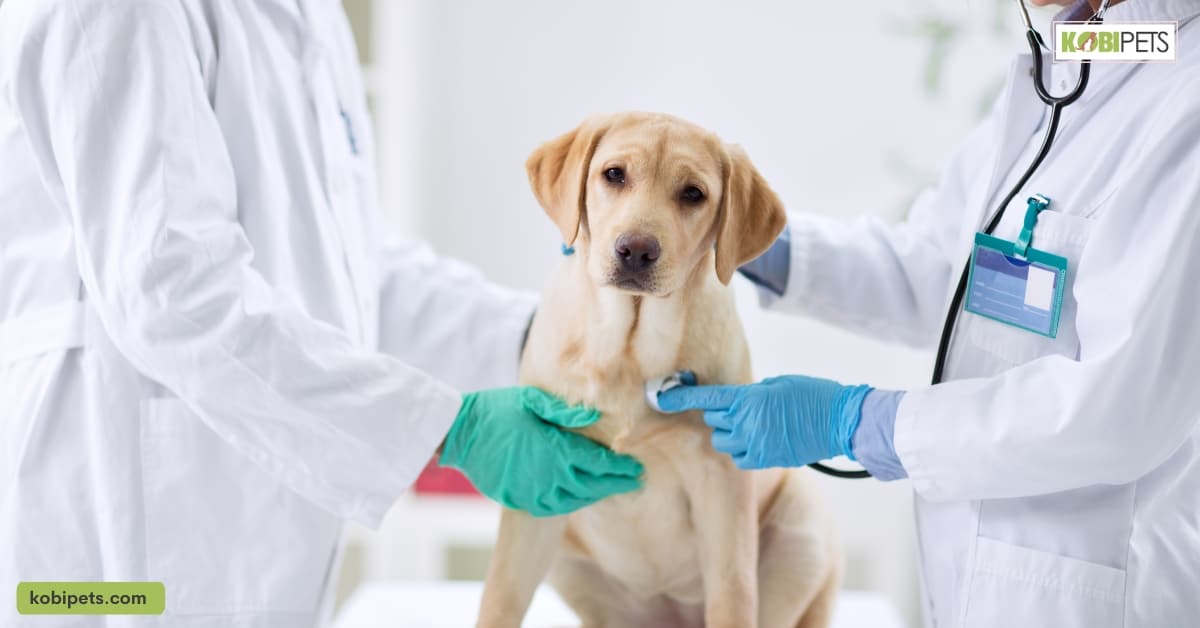
Potential Medical Expenses: Cats vs Dogs
| Type of Pet | Potential Medical Expenses | Cost per Incident (USD) |
| Cat | Urinary tract infection | $200- $1000 |
| Dental Cleaning | $200-$500 | |
| Gastrointestinal problems | $200-$1000 | |
| Feline Leukemia Testing | $50-$150 | |
| Dog | Bloat (GDV) | $1000-$5000 |
| Cruciate Ligament Surgery | $1000-$5000 | |
| Cancer | $1000-$10000 | |
| Dental Cleaning | $200-$500 |
Note: The cost may vary depending on the location and the specific veterinary clinic and the severity of the condition. Also, unexpected medical expenses may occur for either cats or dogs.
Potential Medical Expenses for Cats
Owning a cat can be a rewarding experience and bring joy to your life; however, it does come with expenses. Whether you have one cat or many, making certain that they are properly fed and cared for is essential.
Depending on breed and lifestyle, food, vet visits, medical treatments, spaying/neutering, vaccinations, flea/tick treatments, and toys can quickly add up. Additionally, monthly medication needs must be taken into account when thinking of potential medical expenses for cats – this could include yearly heartworm testing or ongoing medicine for chronic conditions like asthma and diabetes.
Being aware of the costs associated with cat ownership can be helpful in budgeting for furry family members for years to come.
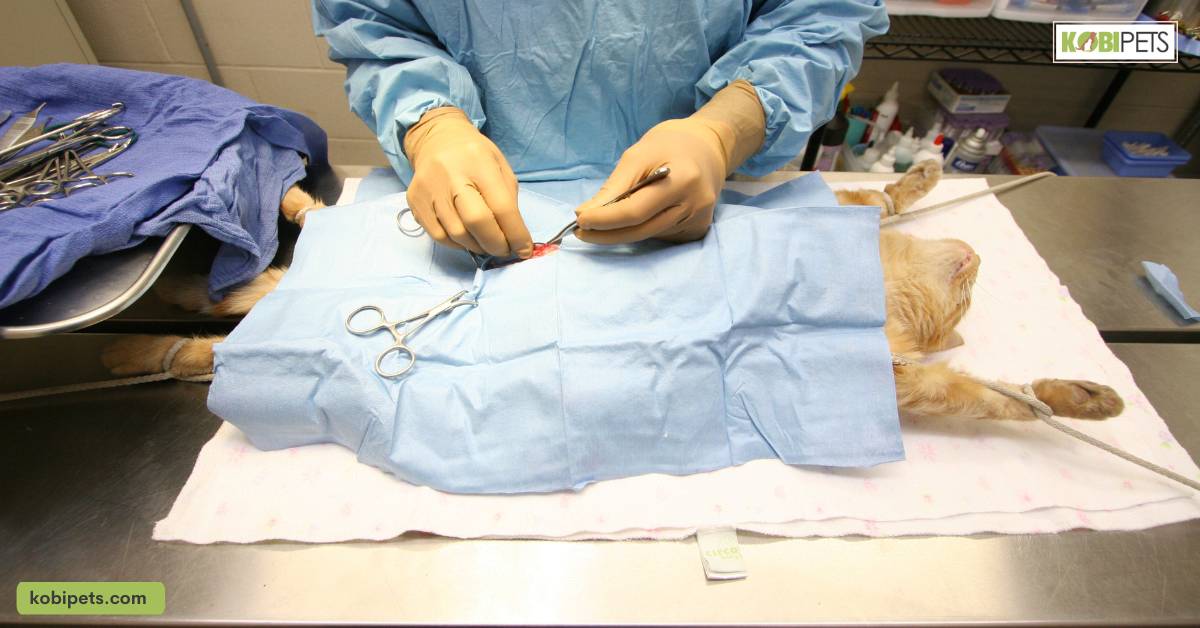
Potential Medical Expenses for Dogs
Owning a dog can be a very rewarding experience, but it is important to consider the potential medical expenses that pet owners may face. Regular feedings are essential for their health and well-being, as well as medical care such as physical checkups, vaccinations, and other preventative measures.
On top of regular food costs and depending on the size and breed of the dog, owners may need to allocate money for food supplements or special diets which could add up over time. Additionally, larger breeds require special considerations such as joint support supplements which can come with a hefty price tag.
With appropriate planning and researching different products, pet owners should be able to find options that both fit into their budget and take their pet’s health into account.
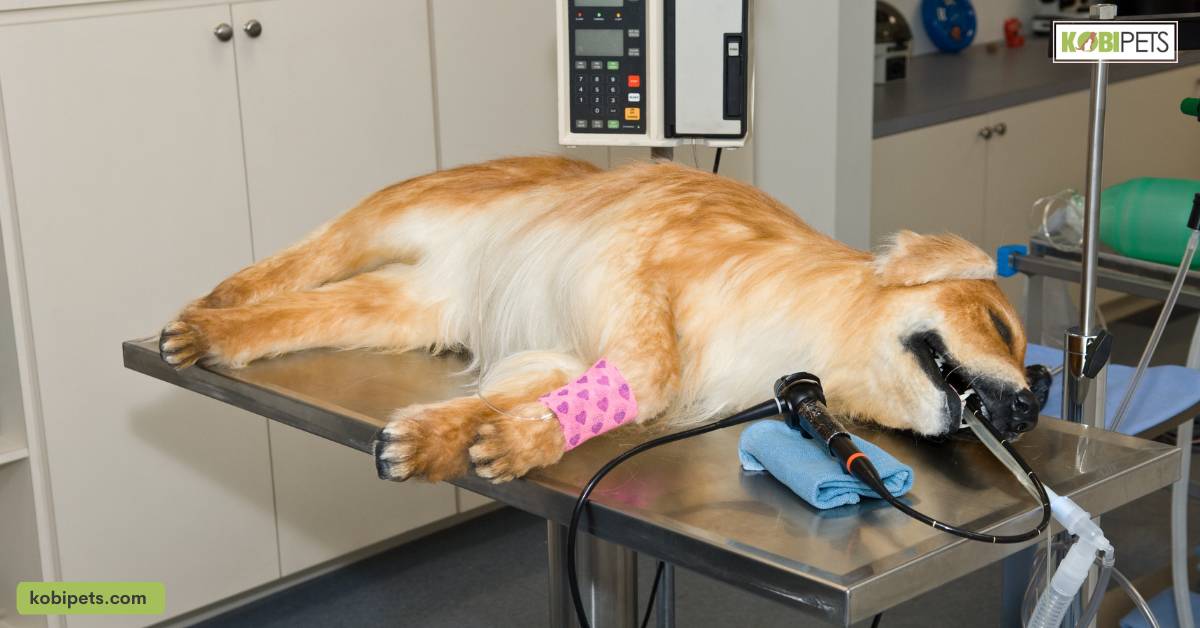
Other Expenses for Dogs
Training and Grooming Expenses
Owning a dog can be a joyful and rewarding experience, but pet owners should be aware of the expenses associated with it. Training and grooming requirements vary depending on the breed, size of the dog, and the preferences of its owner.
These costs can range from buying collars, leashes, and toys for basic training to hiring a professional groomer for more elaborate needs. Additionally, owners will need to factor in feeding costs for high-quality foods as well as ongoing care that includes regular vet checkups and vaccines.
With proper research and budgeting, pet owners can ensure all these expenses fit into their budgets while giving their furry companions all the love they deserve.
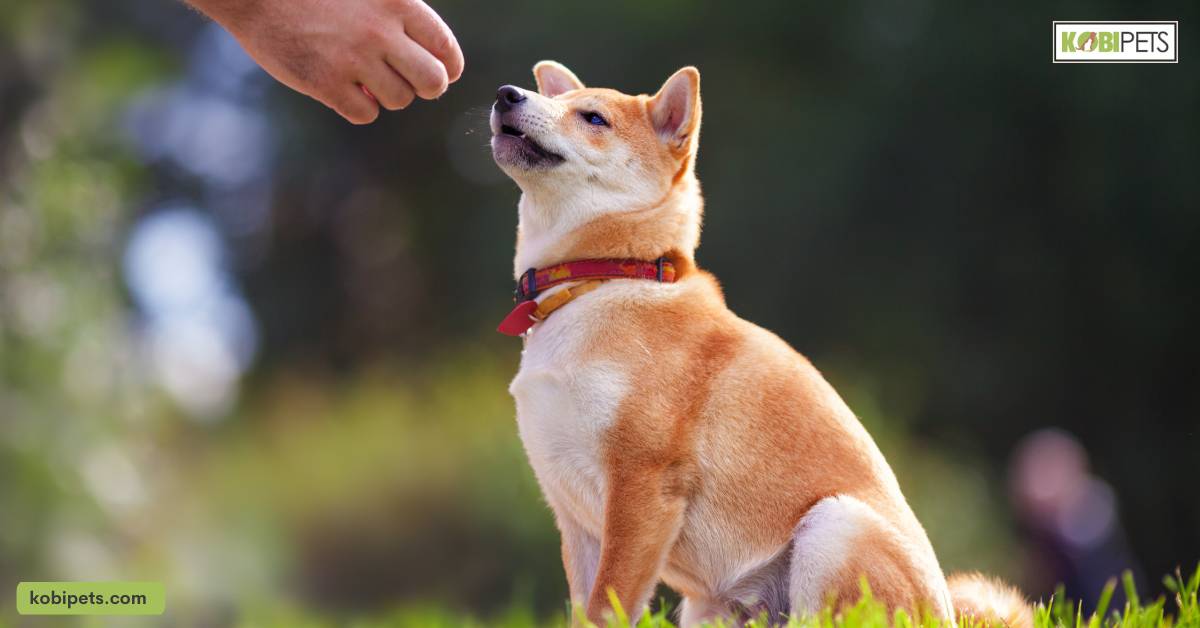
Other Factors (Size, Breed, etc.)
When considering the costs of owning a dog, many people overlook other factors that can significantly impact the overall expenses. First, the size of any prospective canine companion should be taken into consideration when it comes to food, housing, and veterinary care.
Larger breeds are often more expensive than smaller ones due to the larger portions of food they require, as well as increased medication doses if they show signs of illness or injury. Additionally, certain breeds tend to be more costly in terms of grooming needs and vet visits than other breeds.
For example, Bulldogs may face certain health issues such as skin disorders and chest issues that could result in frequent trips to the veterinarian. Before settling on a specific breed, research its care requirements so you can be prepared for additional costs above and beyond basic nutrition and housing needs.
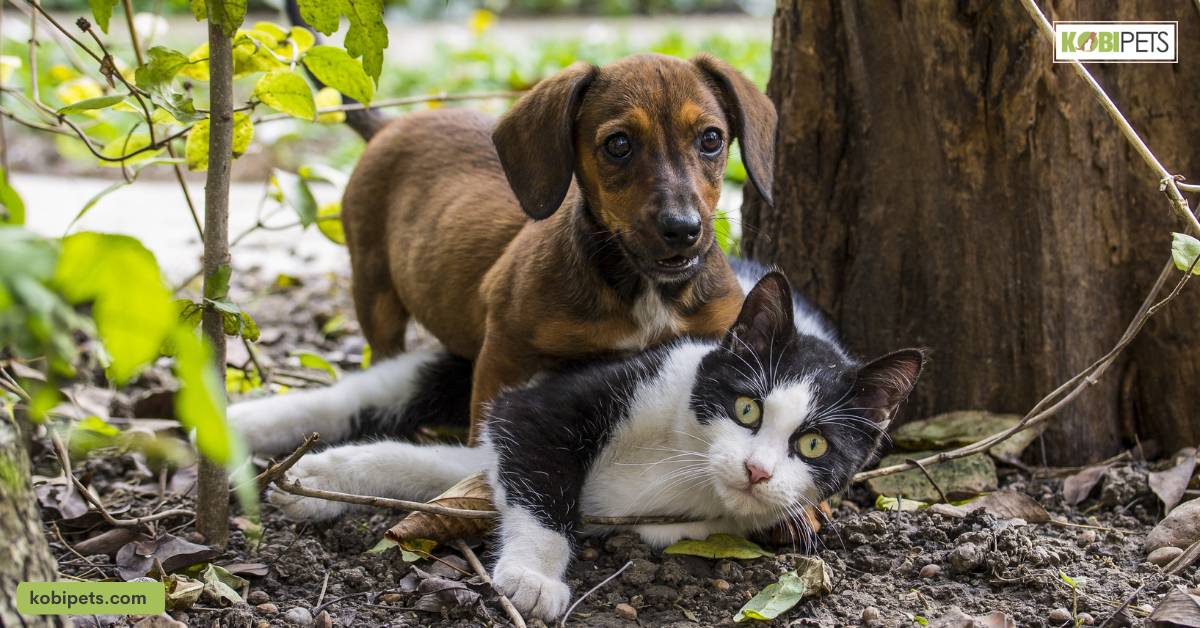
In Conclusion
Owning a pet, whether it’s a cat or a dog, is both rewarding and expensive. It’s important to carefully consider all the costs associated with owning one or the other before making your decision.
While cats tend to be less expensive than dogs in terms of food, additional supplies needed, veterinary care and vaccinations, as well as potential medical expenses, the size and breed of any prospective canine companion should also be taken into account when budgeting for your new furry family member.
By taking the time to do adequate research ahead of time, you can ensure that you are able to provide quality care while staying within your budget.






